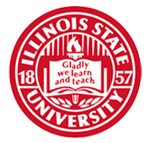Abstract
Adequate service provision for culturally and linguistically diverse (CLD) clients has been an issue the field of speech-language pathology (SLP) has been grappling with. At the root of this issue is a lack of professional CLD training in SLP programs and a lack of diversity among the students enrolled in these programs. The current study described the MS-SLP bilingual emphasis curriculum and recruitment practices at Florida International University (FIU). Outcomes for the MS-SLP graduates were also explored. The FIU MS-SLP program entails three dedicated courses on bilingual clientele with communication disorders across the lifespan, infusion of CLD concepts across all required courses, clinical practicum experiences with CLD clients, and taking a non-traditional approach in the admissions process by not making GRE scores compulsory. Through statistical analyses, FIU MS-SLP graduate Praxis test scores were compared to those of SLP graduates, nationally. White non-Hispanic/Latinx, Asian, and Black graduates of FIU’s MS-SLP program attained comparable Praxis scores while Hispanic/Latinx FIU MS-SLP graduates scored significantly higher than their counterparts, nationally. Implications include the need for graduate SLP programs to reconsider traditional admissions requirements which historically prevent many CLD students from being accepted into graduate school. Only by recruiting CLD students and pragmatically implementing cultural competence objectives into the SLP graduate program curricula will the field of SLP be able to address the critical shortage of bilingual and CLD speech-language pathologists.
Recommended Citation
Alfano, A. R.,
Medina, A. M.,
&
Moore, S.
(2021).
Preparing Culturally and Linguistically Diverse Students to Work with Culturally and Linguistically Diverse Populations: A Program Design and Student Outcomes Study.
Teaching and Learning in Communication Sciences & Disorders, 5(3).
DOI: https://doi.org/10.30707/TLCSD5.3.1649037688.612332




